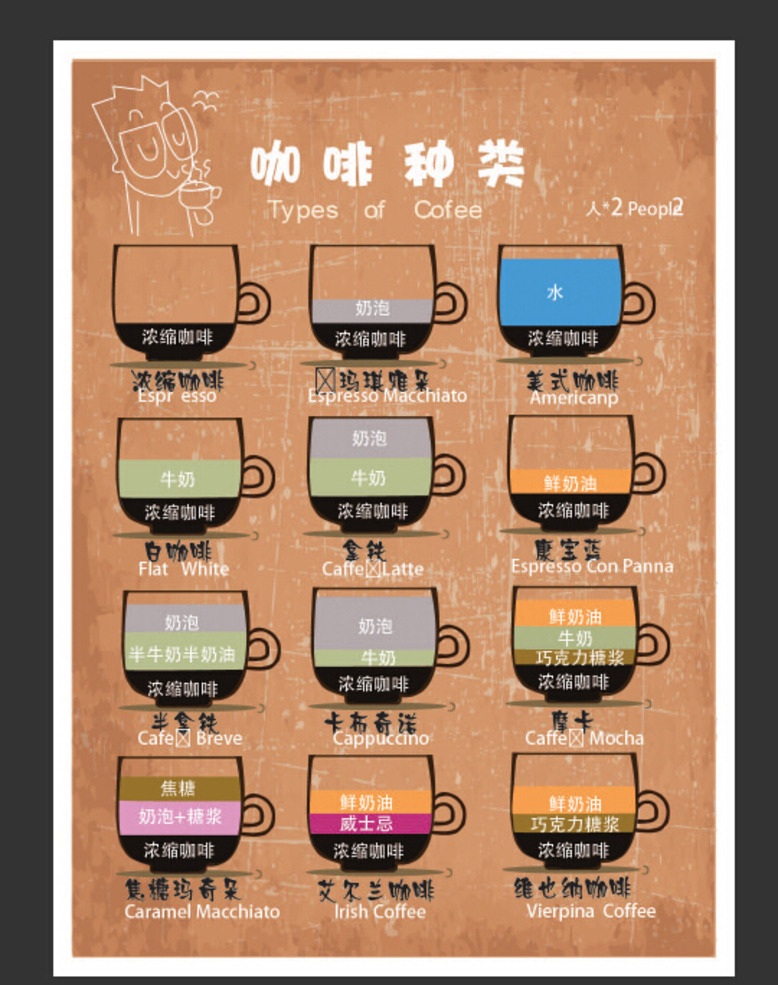Grinding scale production area of Tanzania coffee beans by characteristic flavor and taste treatment
Grinding scale production area of Tanzania coffee beans by characteristic flavor and taste treatment
Water washing is rarely used, which allows coffee beans to absorb the aroma of the pulp, so the fruit flavor is heavier.
Kilimanjaro coffee is very characteristic, it emits delicate aroma, and contains wine and fruit aromas, people taste endless aftertaste, from the appearance is very similar to Kenyan coffee, the overall taste is more similar to Sumatra Kalou coffee. After drinking Kilimanjaro coffee, I always feel a soft and mellow earthy smell around my mouth. Coffee gourmets often use words such as "wild" or "wild" to describe it. It can be said that pure Kilimanjaro coffee is "the most African coffee".
The coffee cups made in Songea are well-behaved, reflecting the common characteristics of "northern" coffee. However, the coffee produced by Kibo has lost this characteristic because of the loss of flavor during transportation. Songea tastes clear and unrestrained, although it is still slightly more relaxed and mild than Kenyan coffee. This season, Nkoanekoli and Ngorongoro have also joined the ranks of coffee cultivation, which represents the development of coffee cultivation in other regions. However, there is a place where the coffee is stale and tasteless, with no performance in the cup. We have tested some garden beans, and they all have obvious "transportation problems", that is, the flavor of coffee beans has been lost in the course of transportation. But the problem is that although Tanzania is aware of the problem and has paid extra for it, the quality of coffee beans has not improved. So what can we do to encourage people to make mistakes and try their best to prevent the quality defects of coffee beans caused by transportation, so that their flavor can be better reflected?
Tanzanian coffee is a kind of Central / East African water-washed (wet-treated) coffee beans, which is characterized by bright acidity and wild flavor. Kenyan coffee is undoubtedly the best coffee of this kind. Garden beans are usually singled out and sold at a higher price, but their performance in the cup is often unsatisfactory, making people feel that it is not worth it. Tanzania green beans, as a new type of coffee beans, sell very well in the United States, so many roasters have accepted this reality. Indeed, Tanzanian coffee has great potential, but it often misses the expression period of the best flavor because of the long transportation process. Because the coffee industry in Tanzania does not have the same infrastructure as Kenya, it is very possible that coffee beans have become old beans in containers on the way to the port. I can often brew the perfect flavor of this kind of coffee, but the aged beans have completely lost their flavor for a few years. So please keep in mind that if there is a newly arrived Tanzanian coffee on the supply list, it will make me very excited, because this batch of coffee must be very good. Mt in northern Tanzania. Excellent Tanzanian coffee is produced in the Kilimanjaro,Moshi and Mbeya areas, as well as in the Sogea area near the Ruvuma River and the Ruvuma basin in the south.

Important Notice :
前街咖啡 FrontStreet Coffee has moved to new addredd:
FrontStreet Coffee Address: 315,Donghua East Road,GuangZhou
Tel:020 38364473
- Prev

Flavor description characteristics of Yega Snow Flavor in Ethiopia the taste of varieties produced by regional treatment method
The flavor description characteristics of Ethiopian Yejia Snow Flavor Variety processing method the taste of Yega snow caffeine has a strict standard for collecting red fruits (as a result of coffee trees). Before exposing the coffee fruit, the unripe green fruit or defective fruit is removed manually, and the damaged or moldy fruit is removed in the process of solarization. After two weeks, the flesh sugar and essence are all infiltrated into the coffee bean, and the water content is reduced to 12%.
- Next

Characteristics of Panamanian coffee beans taste and flavor description of regional varieties produced by grinding scale
The characteristics of Panamanian coffee beans, taste and flavor description grinding scale regional varieties when the commodity price of coffee is still relatively low, the Panamanian Fine Coffee Association organized a competition called Best Panama: coffee beans from different parts of Panama were ranked and auctioned online. Esmeralda Manor has been growing a plant called Geisha for many years.
Related
- Detailed explanation of Jadeite planting Land in Panamanian Jadeite Manor introduction to the grading system of Jadeite competitive bidding, Red bid, Green bid and Rose Summer
- Story of Coffee planting in Brenka region of Costa Rica Stonehenge Manor anaerobic heavy honey treatment of flavor mouth
- What's on the barrel of Blue Mountain Coffee beans?
- Can American coffee also pull flowers? How to use hot American style to pull out a good-looking pattern?
- Can you make a cold extract with coffee beans? What is the right proportion for cold-extracted coffee formula?
- Indonesian PWN Gold Mandrine Coffee Origin Features Flavor How to Chong? Mandolin coffee is American.
- A brief introduction to the flavor characteristics of Brazilian yellow bourbon coffee beans
- What is the effect of different water quality on the flavor of cold-extracted coffee? What kind of water is best for brewing coffee?
- Why do you think of Rose Summer whenever you mention Panamanian coffee?
- Introduction to the characteristics of authentic blue mountain coffee bean producing areas? What is the CIB Coffee Authority in Jamaica?

